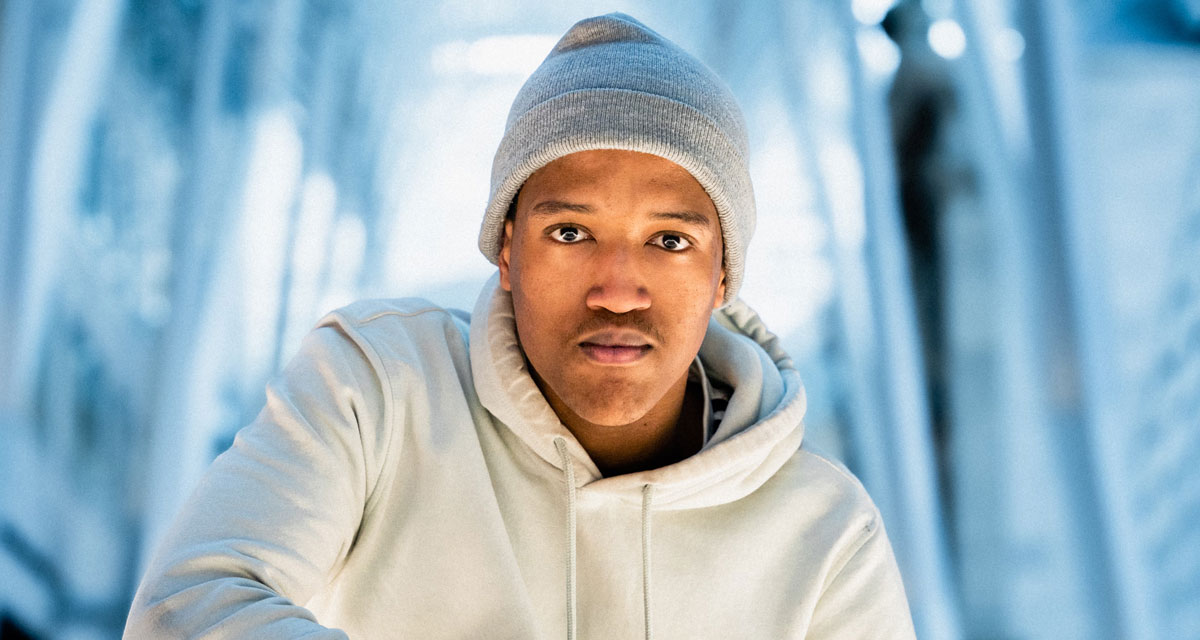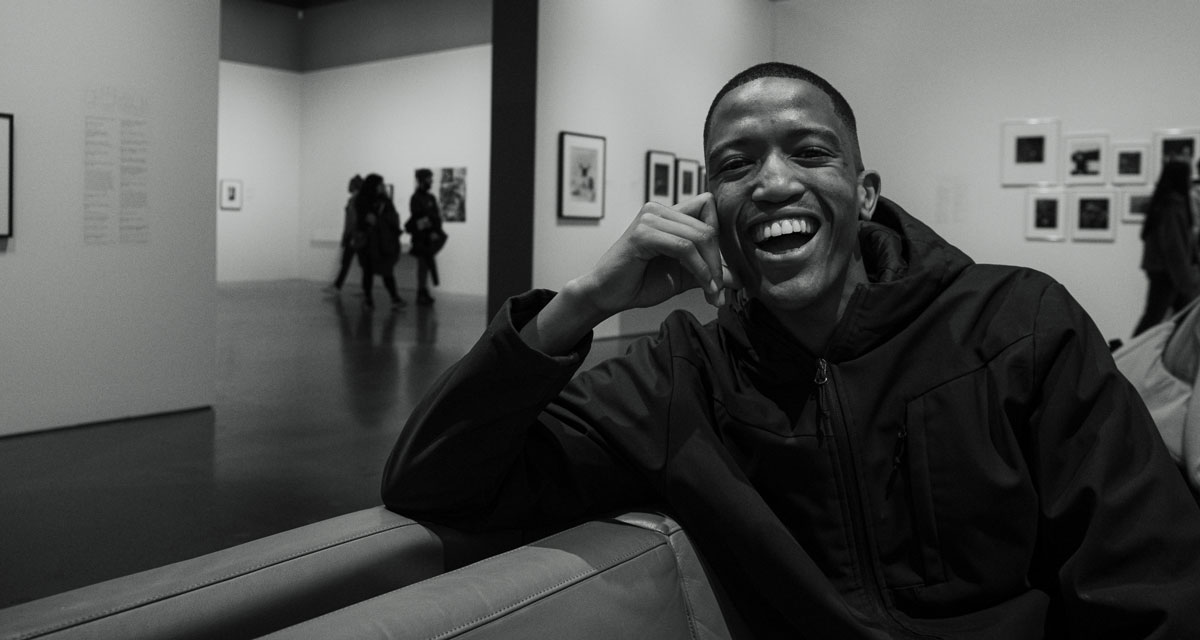From a Virtual Classroom in Botswana to Grad School at UC Berkeley

Atang Peloewetse started at U of T from Gaborone, Botswana. (Photos courtesy of Atang Peloewetse)
When Atang Peloewetse started his classes at U of T, he did so from 13,056 kilometres away.
Starting U of T in the fall of 2020 in the early stages of the COVID-19 pandemic, Peloewetse began his studies in chemistry from his hometown of Gaborone, Botswana.
It wasn’t an easy first semester—taking his courses online was a challenge, especially with a time change of six hours, which forced him to attend classes late at night.
“I was taking classes at eight, sometimes midnight, if they were six o'clock lectures in Toronto,” he says. “I needed to readjust and change how I studied.”
Meeting professors during office hours was also difficult, but Peloewetse made the extra effort to get some digital face time. “I made it my business to know the people who were teaching me,” he says.
Despite being online, he joined the Chemistry Student Union and study groups which gave him a sense of community. “I joined those in an attempt to be in touch as much possible even though it was virtual,” he says. “I was fortunate enough to have a study group of people who enjoyed each other's vibe. We hung out and made it our business to meet up once we all came to Canada, which we did.”
Peloewetse arrived on campus the following semester and is now graduating with an honours bachelor of science as a member of Victoria College, winning awards along the way such as the David H. Farrar Undergraduate Scholarship in Chemistry.

This is awarded to a chemistry undergrad who has distinguished themselves both academically and for their leadership and contribution to university life through student governance, community service or volunteer work.
Initially, Peloewetse was interested in becoming a doctor and felt studying neuroscience was the right path.
“But my father said, ‘It's great that you want to do that, but if you become a doctor, you maybe save 1,000 lives. But if you develop systems for doctors or their patients to use, you've indirectly saved millions.’
“I then decided to pivot,” he says. “And I became interested in organic chemistry and realized that I really liked drug synthesis and drug development.”
As engaged as he was in his studies, creating and being engaged in an active community was equally rewarding, as reflected in his involvement with the Chemistry Student Union.
“It was incredibly important for me to find the space and a community regardless of race, gender, creed, sexual orientation, where we felt welcomed, accepted and accommodated,” he says.
That fueled his passion for organizing several events, including "Meet the Profs", where a diverse group of scholars discussed wide array of topics: both chemistry-related and well beyond.

An avid photographer, Atang Peloewetse has a passion for portraits.
While wanting to strengthen ties within his academic community, there was also a personal motive.
“I never had the opportunity to meet some of my professors because of the pandemic,” he says. “So I thought, why not create events for students to just come together and meet a professor in a totally relaxed setting. We learned from them just through the human-to-human interaction.”
He also found supporting lower-year students fulfilling, becoming a mentor in his fourth year to support second-year chemistry students.
Looking back, it’s moments of connection with fellow students and professors that Peloewetse cherishes most.
“Interactions with professors like Helen Tran, Andy Dicks, Mark Lautens, Andrei Yudin and Robert Batey were so meaningful—it could be conversations about work and research, or about personal development and personal growth,” he says.
So what does Peloewetse love about chemistry?
“It’s the logic that underpins the chemical reactions,” he says. “Understanding that logic, especially in the field of total synthesis.” That’s the complete chemical synthesis of a complex molecule, often a natural product, from simple, commercially available materials.
“And chemistry teaches you, through these reactions and learning these mechanisms, just how everything can be broken up. So developing that robust logic of thinking and forward planning stimulates me a lot mentally.”
He’s also found applying this thinking helps him in other parts of this life, like his passion for photography. He loves taking portraits, but he plans to do more fashion and concert photography in the future.
“If I want to take a photo, it’s the intentionality of knowing how I light a subject. How do I get from A to B through these intermediates? That logic I get from chemistry.”
As well, Peloewetse also sees the pursuit of chemistry as an opportunity to be creative.
“What makes creativity so powerful, is the intentionality behind it,” he says. “When you have such a deep understanding of what you're doing, you can begin to become intentional with your creativity. Once you have that acquired, you can get imaginative.”
This, he believes, can be applied to any field.
“Great musicians, photographers, and athletes are intentional with what they do, because they have a deep foundation in the basics,” he says.

Another sample of Atang Peloewetse’s portrait photography.
“Take LeBron James doing a layup. He does it every single time because he has such a deep understanding of the basics of what he's doing. That’s what propels creativity within chemistry — having that deep understanding and solid foundation of the basics.”
Atang intends to use that creativity next fall when he attends the University of California, Berkeley for graduate school. His sights are set on working for a pharmaceutical company, specifically conducting neurodegenerative drug discovery research.
“That’s what I really want to do.”
(This article is courtesy of the University of Toronto Faculty of Arts & Science News.)
